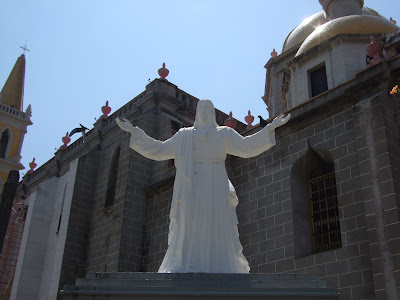











 This last Sunday we also had to give talks in church on "gratitude". It was a be blessing for me to take time to research this because it touched me. It made me think about the many blessings I receive everyday. One story I have to share from my talk...well... because its awesome...
This last Sunday we also had to give talks in church on "gratitude". It was a be blessing for me to take time to research this because it touched me. It made me think about the many blessings I receive everyday. One story I have to share from my talk...well... because its awesome...Elder Marion D. Hanks shares a story about a boy and his mother, who knew the value of expressing gratitude:
He says, “I sat at a stake conference where a returned missionary bore his testimony. He had but a short time and he chose to use one idea. He thanked God for a great, humble mother, and gave his reason. He said that as a high school boy, he [had] been sorely tried by the illness and then death of his little sister whom he had loved greatly and who had been the darling of the family, being the last of them. Their father had died. The little girl grew ill, and in spite of prayers and administrations and fasting and much concern, worsened and died in the night. The boy went into his room, locked the door, and sobbed out his broken heart to the walls because he was not willing to do it to the God whom he could not now honestly approach. In his rebellion and anger at a God, if there were one, who would permit such a thing to happen to them, he cried out in rebellion. He said he would never pray again, would never go to church again, and could never have any confidence again in a God who would permit this to happen. And in his immature but sincere sorrow, he made some rather serious covenants with himself. He stayed awake the rest of the night, apprehensive about an experience he anticipated. It was their custom, as it is in so many, though not enough, Latter-day Saint homes, to kneel morning and evening with the children around the mother, to thank God for the goodness of his blessings.
“He waited for that moment, knowing what he had to say, but fearing it. When his mother said, ‘Come, children,’ he said, ‘No.’
“He said, ‘No, I will not kneel down, and I will never kneel down again.’
“She said, as I remember his words and I was deeply touched as were we all. ‘Son, you’re the oldest child in this home. You are the only man in the house, and if I ever needed a man, I need one now. You kneel down.’
“He knelt down, still rebellious, but because his mother, the idol of his heart, needed him, and he began for the first time to think in terms of her broken heart and her sorrow. So he knelt, but he said to himself, ‘I wonder what she’s going to thank God for this morning.’ And his mother, knowing as she must have, the questions in his mind and the minds of the other children, taught them the gospel on their knees that morning. She thanked God for what the family knew, for the blessing of eternal ties, for direction and purpose and guidance and convictions as to the future. She thanked God that they had been blessed with this wonderful, angelic child who had brought so much to them and who was to be theirs, always. And out of her mother’s heart, knowing the desperate, critical nature of the moment, taught her own children what there was to thank God for under conditions of such stress.
“As the boy stood, a successful, dedicated Latter-day Saint who had filled an honorable, difficult mission, he thanked God for a mother who was a heroine.” (Heroism, Brigham Young University Speeches of the Year [25 Mar. 1959], 3–4).
BE THANKFUL FOR ALL THAT YOU HAVE.
THANK THE ONE THAT HAS GIVEN YOU ALL THINGS.














.png)




























